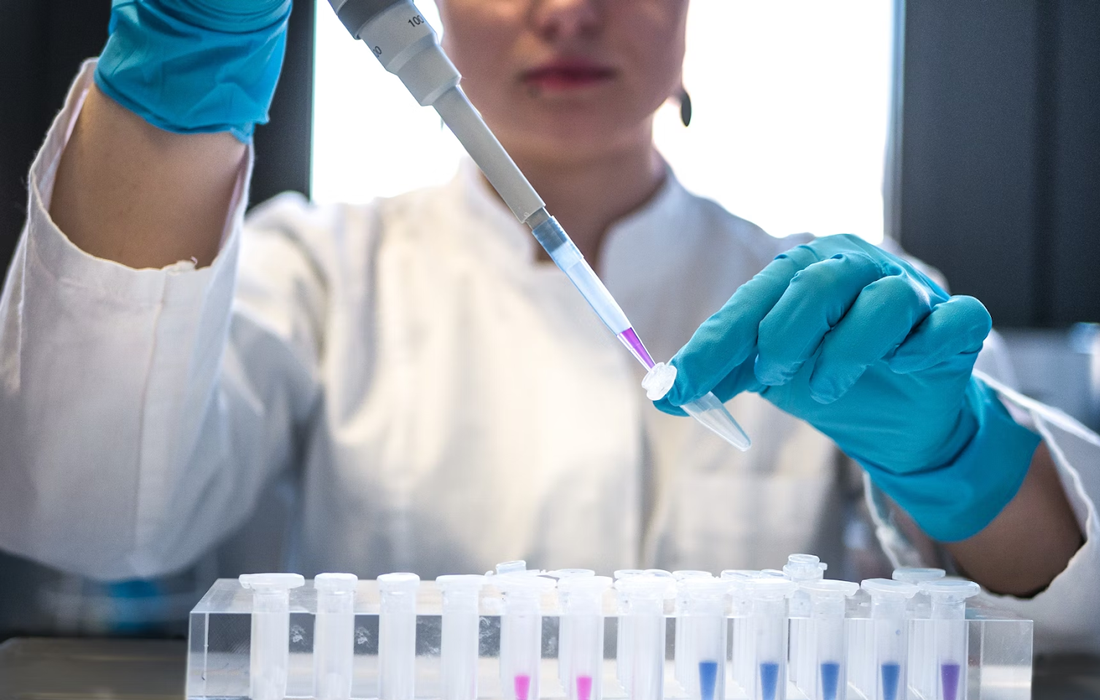Regenerative Medicine News and General Information
Immune System Plays Crucial Step in Creating Blood Stem Cells
A microbial sensor that helps identify and fight bacterial infections also plays a key role in the development of blood stem cells, valuable new insight in the effort to create patient-derived blood stem cells that could eliminate the need for bone marrow transplants.
The discovery by a research team led by Raquel Espin Palazon, an assistant professor of genetics, development and cell biology at Iowa State University, was published in Nature Communications. It builds on prior work by Espin Palazon showing that the inflammatory signals that prompt a body’s immune response have an entirely different role in the earliest stages of life, as vascular systems and blood are forming in embryos.
Espin Palazon said knowing that embryos activate the microbial sensor, a protein known as Nod1, to force vascular endothelial cells to become blood stem cells could help develop a method to make blood stem cells in a lab from a patient’s own blood.
Stem cells are both the factories and the raw materials of a body, repeatedly dividing to self-renew and build new cells for specific tissues.
Pluripotent stem cells in embryos can make any kind of cell a body needs, while adult stem cells are limited to producing particular types.
Blood stem cells, also known as hematopoietic stem cells, make all of blood’s components. A lifetime supply of blood stem cells is created before birth inside an embryo.
The immune receptor Espin Palazon’s team identified activates in an embryo before endothelial cells start becoming stem cells, priming them for the transition.
Researchers zeroed in on Nod1 by analyzing public databases of human embryos and studied it using zebrafish, which share about 70% of their genome with humans. Blood stem cell creation tracked closely with Nod1 levels as its effects were inhibited or enhanced.
To confirm Nod1 also plays a role in human blood development, the research team worked with the Children’s Hospital of Philadelphia.
Researchers there produce human induced pluripotent stem cells, which are generated from mature samples but genetically reprogrammed to behave like the make-anything stem cells found in embryos.
Figuring out that Nod1 is a prerequisite for blood stem cells to develop is progress for scientists hoping to design a system for producing blood stem cells from human samples, which could offer a revolutionary new option for patients suffering from blood disorders.
Instead of a life-saving infusion of blood stem cells via a transplant of bone marrow, the spongy insides of bones that holds most of a body’s blood stem cells, patients could be treated with stem cells that originated in their own body.
“This would be a huge advancement for regenerative medicine,” Espin Palazon said.
Sources:
Xiaoyi Cheng, Radwa Barakat, Giulia Pavani, Masuma Khatun Usha, Rodolfo Calderon, Elizabeth Snella, Abigail Gorden, Yudi Zhang, Paul Gadue, Deborah L. French, Karin S. Dorman, Antonella Fidanza, Clyde A. Campbell, Raquel Espin-Palazon. Nod1-dependent NF-kB activation initiates hematopoietic stem cell specification in response to small Rho GTPases. Nature Communications, 2023; 14 (1) DOI: 10.1038/s41467-023-43349-1
Iowa State University. (2023, December 19). Immune system plays crucial step in creating blood stem cells. ScienceDaily. Retrieved December 29, 2023 from www.sciencedaily.com/releases/2023/12/231219182253.htm
Image from: https://unsplash.com/es/fotos/persona-sosteniendo-un-cepillo-de-dientes-naranja-y-blanco-RlOAwXt2fEA

